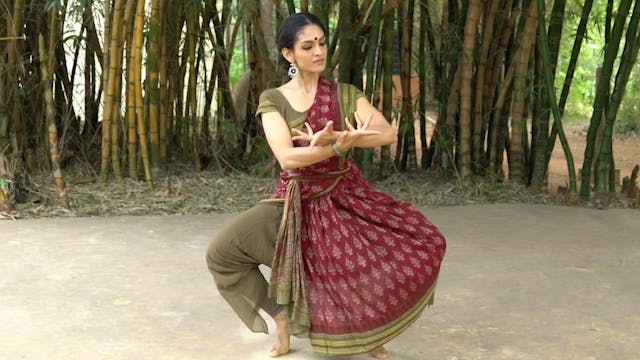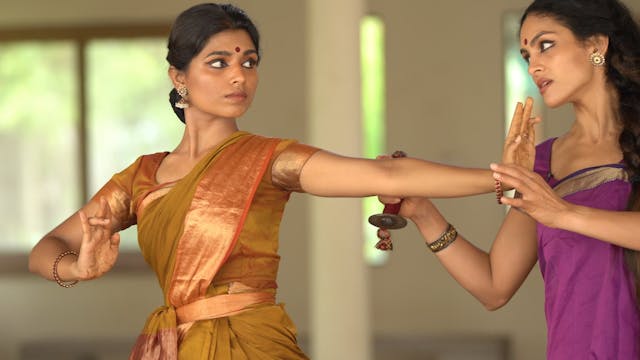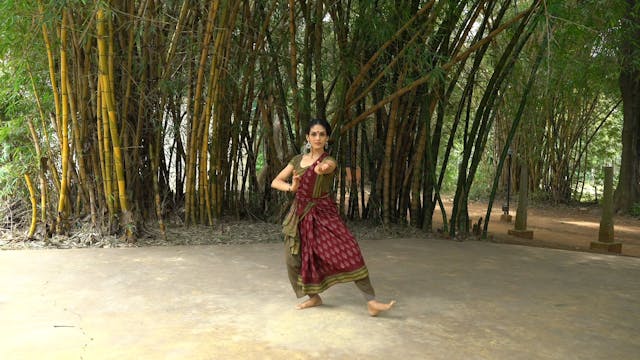Parval Adavu 3
Playlist 9
•
3m 21s
Paraval literally means to spread. Some schools of thought also call the Paraval adavu, the 'Pakkadavu' as it moves to the side while sliding. Some others change the name based on the way the foot articulates with the floor. A few of the types of Paraval, can be referred to as Marditam adavau, as it uses the kicking movement of the foot. For simplicity we will refer to the entire series as Paraval. The Raadha Kalpa method introduces and practices over 8 types of Paraval adavus.
Things to keep in mind.
- Make sure your hip stays even and thigh pushes out when you lift your leg up.
- Finish all four counts each time and join your feet.
- Be clear with the tilt of your head. We tilt the head in anchitam toward the direction of the pointed toe so that the hips are balanced. This is the first variation, so please try to follow this.
- Make sure to turn the leg out completely before striking the floor in the last Paraval adavu, which is also the variety that can be called Marditam adavu because of the kicking action of the foot.
Up Next in Playlist 9
-
Kuditta Mettaduvu
Pointers for Kuditta Mettadavu:
Try to go down instead of hopping up each time you snatch onto your heels.
Keep dropping your tailbone and pushing your thighs back.
When you bend to the side, try not to have any form of a forward bend.By the time you progress to the Kuditta mettadavu, your l...
-
Theermana adavu/ Makutadavu
Theermana, or Makuta literally refers to something that ends a sequence. These adavus are placed at the end of a Korwai or Jathi to complete it. They are done in a variety of talas and even the torso moves differently in the many varieties. We will deal with two primary varieties of this Adavu th...
-
Teermana Adavu 1
The Theermana or Makutadavu, is placed at the end of a Korwe or Jathi in specific rhythmic patterns, to create an ending.
The leg is either placed outstretched directly in front or at a diagonal of 45 degrees. The foot is flexed and the heel strikes the floor. In the Raadha Kalpa method we begi...


